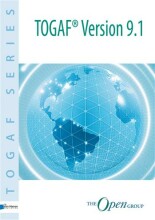Conceptualizing and theorizing
12 important questions on Conceptualizing and theorizing
Which treaty marked the end of the European Economic Communitites and introduced the European Union?
- The Treaty of Maastricht.
Place all the treaties you learned in the right chronological order:
- Treaty of Paris, 1951.
- Treaty of Rome, 1957.
- Single European Act, 1986.
- Treaty of Maastricht, 1992.
- Treaty of Amsterdam, 1997.
- Treaty of Nice, 2001.
- The Constitutional Treaty, 2005.
- Treaty of Lisbon, 2007.
Which countries voted against the Constitutional Treaty?
- The Netherlands & France.
- Higher grades + faster learning
- Never study anything twice
- 100% sure, 100% understanding
Explain what the grand theory of the European Union is:
- The theory which explains the main features of the integration process as a whole.
In its classic formulation, neo-functionalism revolves largely around one particular concept. Describe that word:
- Concept of spillover.
Neo-functionalism revolves largely around the concept of spillover, which takes two main forms.
- What are those two forms?
- Functional spillover.
- Political spillover.
Neo-functionalism largely goes around two concepts of spillover; Functional - and Political - spillover.
- Define Functional spillover:
- Arises from the interconnected nature of modern economies, which makes it difficult to confine integration to particular economic sectors. Rather, integration in one sector produces pressures for integration in adjoining and related sectors.
Neo-functionalism largely goes around two concepts of spillover; Functional - and Political - spillover.
- Define Political spillover:
- Largely follows on from economic integration and has a number of dimensions: national elites increasingly turn their attention to supranational levels of activity and decision-making; these elites increasingly turn their attention to supranational levels of activity and decision-making; these elites become favourably disposed towards the integration process and the upgrading of common interests; supranational institutions and non-governmental actors become more influential in the integration process, whilst national states and governmental actors become less influential, and the increasing importance of integration generates pressures and demands for political control and accountability at the supranational level.
Neo-functionalism. Describe the order of the Functional spillover:
- Integration of economic sectors.
- The pressure to integrate other economic sectors.
- National economies become entangled.
Neo-functionalism. Describe the order of the Political spillover and draw the mini gram:
- Need for supranational institutions.
- Political integration.
Intergovernmentalism has its origins in international relations theory, and more particularly the realist tradition within that theory.
- Define the concept of realism:
- Realism is centred on the view that nation-states are the key actors in international affairs and the key political relations between states are channelled primarily via national governments.
Unlike neo-functionalism, realism does not accord much:
- Importance to the influence of supranational or transnational actors and only limited importance to non-governmental actors within states.
The question on the page originate from the summary of the following study material:
- A unique study and practice tool
- Never study anything twice again
- Get the grades you hope for
- 100% sure, 100% understanding
































